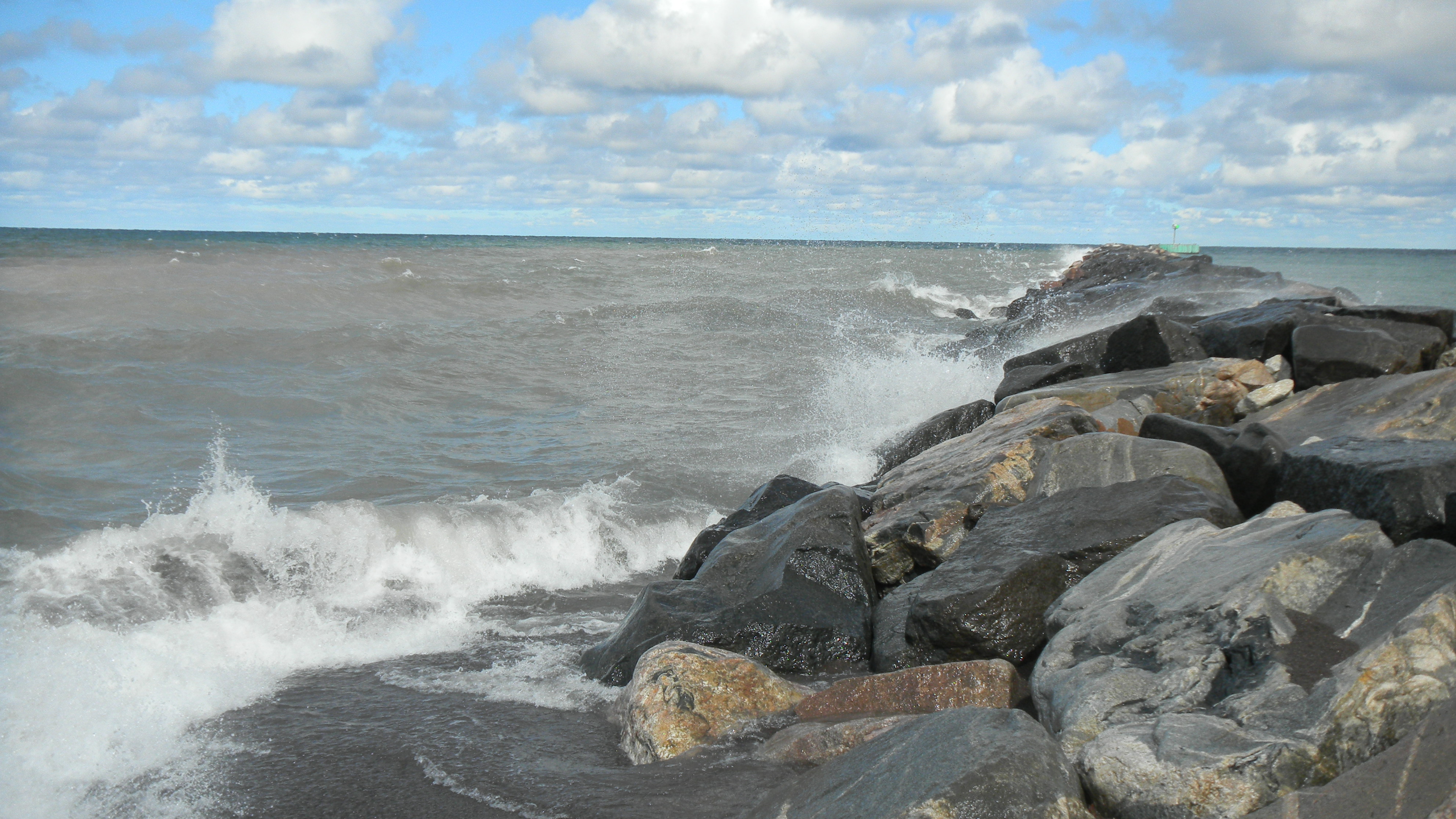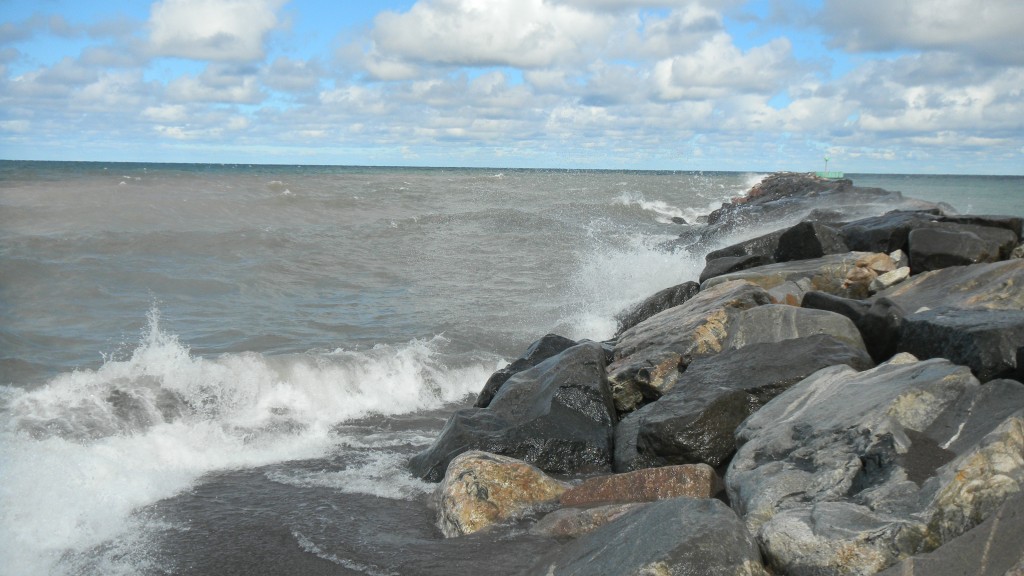reaches, a stone sentence, across the bay—
its jigsaw syntax entered like hopscotch
from Land’s End,
entered the way wrens
step, step on sidewalks, crushed shells,
looking for seed,
as if unsure of earth,
until it feels natural to be outside
the known scope,
and you follow
the jumbled puzzle out farther
than you first expected, toehold
by toehold,
to where the broader slabs
give certain footing, a way over water,
Appian, you think, miraculous
the way it seems to float
on tidal flats,
beach-grass wavery as prairie
sprouting from wavelets, tinselate,
the whole horizon threatening to blend
earth, sky and sea,
though sea, sky, and earth
stand poised, pristinely, on the glinting
edge,
so you come to feel yourself
suspended in a fluency that would be
ethereal if not for the thump, thump
of a festival drumming intermittently
from the town, over parabolic sands,
like finest brushstrokes lacing the shoals—
shallows of moon-snails, welks, skate-eggs,
these currents like sandcoils redoubling
in pools where shucked pilings, scarified
granite,
brace to colonies of rockweed
that flail in sediment’s plangent ooze,
the soft siphons of lowlier lives
shooting invisibly from under,
trumpet worms, dogwinkles, bits
of swamp-pink and poverty grass
awash in foam the color of meringue,
salt spray rust in the tide’s
recursive flow,
a slow parting-of-the-waters revealing
articulations of tablets into shifting
dunes that have arranged themselves
into just this measure, as if to say
Nothing needs you here—
not the sundews
and sanderlings, plovers, hovering gulls;
not even the lighthouse at Long Point,
a beacon at the brink of the human:
you are an earthstar tumbling its spores
into the living waste,
the risen pleroma,
your name a net caught in the hollow
between stones
while the tide sounds
the length of this transit, susurrant
fountain, a summoning from under,
and all of it gone by evening.
Hear Ernest Hilbert read with Daniel Tobin on Thursday, November 13th at the Cambridge Public Library, Cambridge, Massachusetts.



